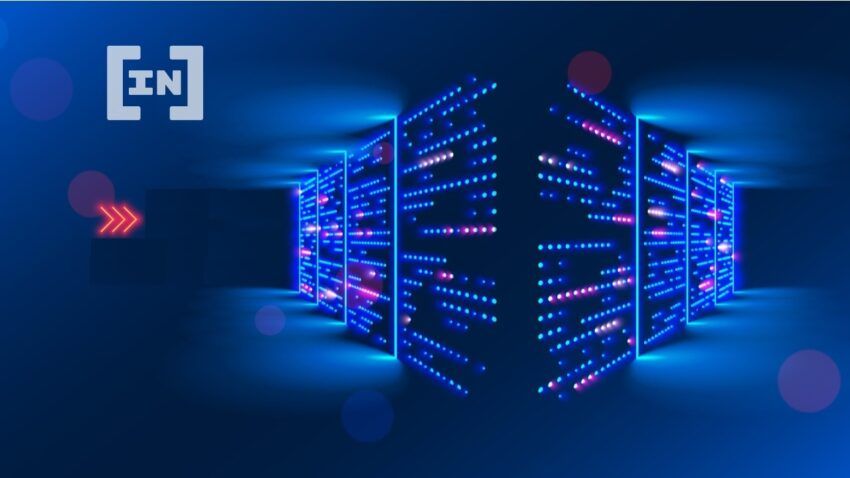Web3 Problems: The struggle is real. Companies may use the word “blockchain” or “Web3.” But this in no way means they are truly decentralized in nature, says Josh Neuroth of Ankr. Here’s the fix.
We can view cryptocurrencies and NFTs in a new light once we take the time to digest the server networks that support them. After all, we can think of cryptocurrencies as merely the symbols or tickers of networks (blockchains) that are enhanced with protocols and powered by servers – the decentralized computers that make Web3 possible.
We are currently witnessing a server revolution and a paradigm shift in terms of how information is stored, retrieved, and shared in the new movement of Web3. This shift will ensure that power is spread more evenly and rewards are shared more equitably for all network participants.
But first, let’s take a look at the limitations and pitfalls of centralized infrastructure that led to the desire for Web3 in the first place.
The Old Model: Centralized Financial Servers and SWIFT
The problems with centralized servers are best explained through the financial model – here, the $USD can be seen as the ticker or symbol. The banking network consists of servers from providers like Visa and Mastercard which are some of the most popular processors of transactions. And the protocol used to send fiat currency is known as the SWIFT protocol (along with other protocols for internal transfers).
This protocol is used to send currency across borders and to impose sanctions on countries that go against the wishes of network controllers. Currently, this would be Russia. In 2014 and 2018, it was Iran. However, the fallout of sanctions can harm more than their intended targets. For that reason, Europe is working on breaking away from SWIFT due to the potential of being “collateral victims of US extraterritorial sanctions.”
Though the SWIFT society is based in Belgium, it’s commonly known to follow directions from the USA. SWIFT is both a protocol to send international transfers and an actual society. The acronym stands for the Society for Worldwide Interbank Financial Communications.
What is becoming very clear is that the protocol is not as important as the server ownership – in the last couple of years, servers have been confiscated, and funds are being frozen. This can only be done because server ownership is centralized and not decentralized. As you can see, this is a big problem as centralized systems of money are used to exert control and influence.
Web3 problems: Centralized Technology Servers Running Rampant
Every time you sign up for a website or platform, you are asked for an email and password. Once complete, your information is stored in a server with entities like Amazon, Google, Facebook, LinkedIn, Twitter, UpWork, Apple, etc. Many of these Big Tech platforms use AWS, an Amazon subsidiary, for storage. This is the most cost-effective option for most companies because when there are hundreds of thousands of servers, small tweaks in optimization result in massive savings.
But a heavy price is paid for this privilege. We have reached peak centralization when it comes to server storage. And this means the information is yours, up until the point you do something perceived as harmful by the company responsible for hosting your servers. Last year, Amazon effectively confiscated the servers of the Parler free speech social media platform, shutting down the company. When your accounts can be deleted, confiscated, sold, or analyzed at any time for commercial purposes, you look increasingly like a product instead of a user.

Web 3 Problems: The Pitfalls of Centralized Web3 Infrastructure
Even Web3 companies are not immune from censorship and control if they use centralized providers. Metamask, a prime entry point for people to access Web3 websites, has actually stopped certain countries from using its services. This is an extremely worrying precedent that runs contrary to the prime component of distributed ledgers – censorship resistance.
However, the issue does not lie with the Metamask wallet. The problem is that MetaMask uses centralized infrastructure in the form of the Infura API. Infura is a Consensus-owned blockchain development platform that constricts the use of the Infura API in certain areas to comply with sanctions. Just because companies use the word “blockchain” or “Web3” in no way means they are truly decentralized in nature.
On the other hand, these decentralized platforms never have the power to take over your account – you can always access your Metamask wallet elsewhere once you possess your private keys. This is at least a baseline of autonomy and privacy.
The New Model: Interacting Directly With Decentralized Protocols
Provided you have the keys to your cryptocurrency wallet, nobody can steal your account. This is not the case with banking, where you don’t own funds deposited in a bank – you merely have the “rights” to them. With any service provider in any industry, you have to comply with certain rules and procedures, or access can be revoked. With cryptocurrency, you are not interacting with a service provider; you are using a decentralized service. There are no “providers” of cryptocurrencies.
Each crypto wallet has a unique account identifier, which could be compared to a BIC or IBAN number in the legacy banking model. This is used to send transactions without any additional third parties needing to take fees, although you pay a small (usually) network fee to assist the servers/miners to do their valuable job.
Imagine if you could interact directly with the SWIFT messaging protocol from the comfort of your computer without having to use a bank as an intermediary. Cryptocurrencies like Bitcoin provide this function, and it’s an excellent use case.
But advanced Web3 organizations are offering a whole host of protocols for you to interact with, along with many creative ways to use a truly decentralized internet. And the use cases extend far beyond the banking sector.
Web3 problems: Building Beyond Bitcoin
Bitcoin was useful, but it mainly paved the way for a Web3 experience. What is sorely needed, in light of recent events, is decentralized infrastructure providers. Ankr bridges this gap as it offers a suite of protocols that works on multiple blockchains.
It also offers public and open Remote Procedure Calls (RPCs). This is important as these RPCs are used by developers to make their decentralized applications work. Because Metamask used the centralized RPCs offered by Infura, their users were denied access. This would never have happened if the development team had chosen Ankr as a decentralized infrastructure provider.
Essentially, instead of development teams having to use centralized hosting providers for their servers and associated services, Ankr gives them access to their enhanced network of protocols with no strings attached.
Imagine if you wanted to host with Amazon and use their services without letting them have any control over what you are building. Ankr is doing this with the added advantage that it can offer you easy access to Web3 (the decentralized future internet) as opposed to Web2 (the centralized traditional internet). The company does not store your private keys (i.e. the things that are used to access your wallet) and is 100% non-custodial. And, Ankr is currently offering developers unlimited blockchain requests on 11+ networks for just $700 annually, which is more cost-effective than the competition.

Ankr DeFi Use Case
It is not only developers that benefit. Most people are interested in making money through cryptocurrencies. While Bitcoin can only appreciate in value, Ethereum and other coins can be “staked” to earn a type of interest. Usually, once the tokens are staked, they are locked away and cannot be used.
Take the example of a typical layperson that wants to take part in new Web3 projects and earn an income from staking on them. To do this with Ethereum requires 32 ETH in terms of deploying a “validator node.” It requires significant technical expertise and your 32 ETH tokens (currently amounting to ~$90,000) are locked away for up to 2 years. The layperson does not have the time, money, or expertise to do this.
Alternatively, Ankr allows one-click deployment on the Ethereum blockchain for a mere 2 ETH, currently around $5,000. The technical expertise requirement is done away with. With Ankr, users earn rewards regardless of node performance (this would not be the case if you ran your own node).
Ankr’s liquid staking feature goes further by doing away with the requirement to have a validator node altogether, which locks up tokens. With liquid staking, users are given derivatives (such as aETHc for ETH) and can then benefit from other DeFi opportunities such as liquidity mining, lending, and yield farming.
Put succinctly, Ankr allows access to staking on multiple blockchains, with none of the classical drawbacks of locked tokens. It offers the easiest, cheapest, and most flexible way to earn profits from staked tokens on Web3.
Decentralized Infrastructure For An Open Internet
Ankr can even potentially compete with AWS, which has a firm (and worrying) grasp on the cloud hosting sector. Its decentralized hosting would be far more cost-effective with a smaller carbon footprint.
When this happens, we will truly begin to witness a distributed and decentralized Web3 internet where your information can never be censored or confiscated by third parties.
Regardless of what the latest Web3 project states in terms of decentralization, if it does not have full autonomy over its servers, it has no real autonomy.
And neither do its users.
About the author:

Josh Neuroth is the Head of Product at Ankr, in the decentralized Web3 infrastructure space. Josh was previously the Senior Director of Product and Marketing at Cyxtera Technologies and VP of Product at Inflect. His passions and professional experiences have inspired his mission to build a better, more open web.
Got something to say about Web3 problems or anything else? Write to us or join the discussion in our Telegram channel.
Disclaimer
In compliance with the Trust Project guidelines, this opinion article presents the author’s perspective and may not necessarily reflect the views of BeInCrypto. BeInCrypto remains committed to transparent reporting and upholding the highest standards of journalism. Readers are advised to verify information independently and consult with a professional before making decisions based on this content. Please note that our Terms and Conditions, Privacy Policy, and Disclaimers have been updated.


